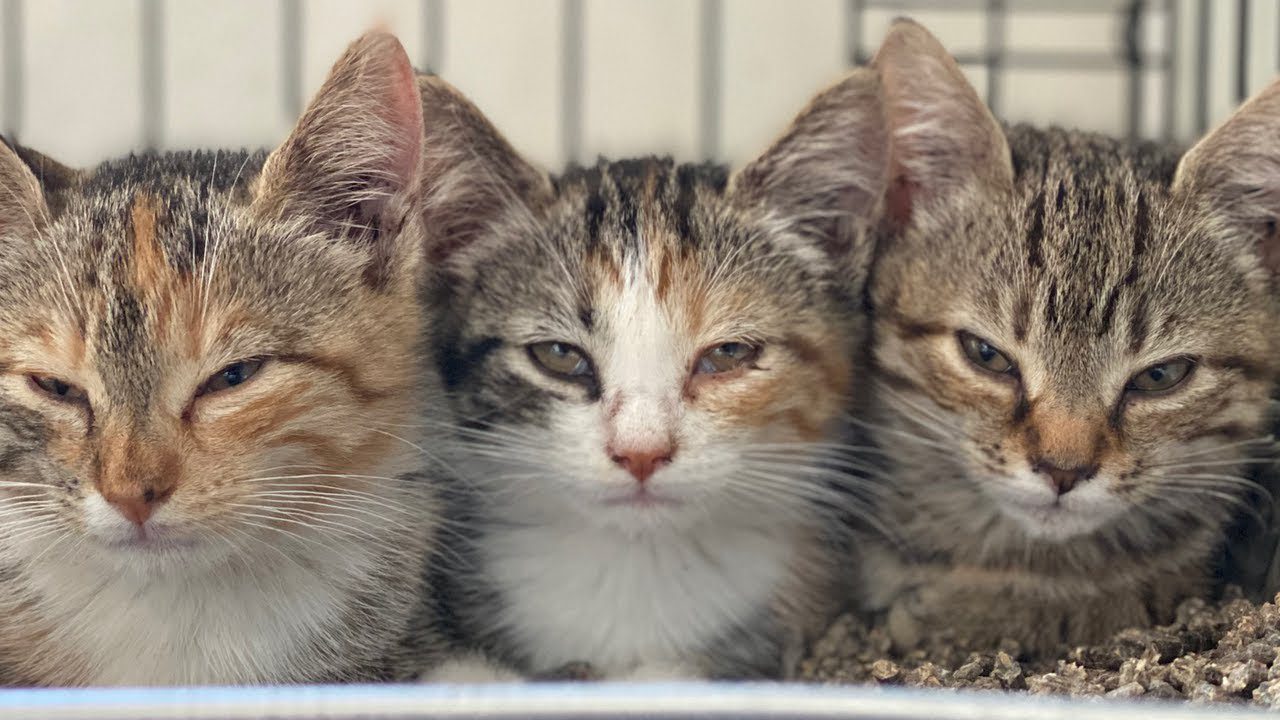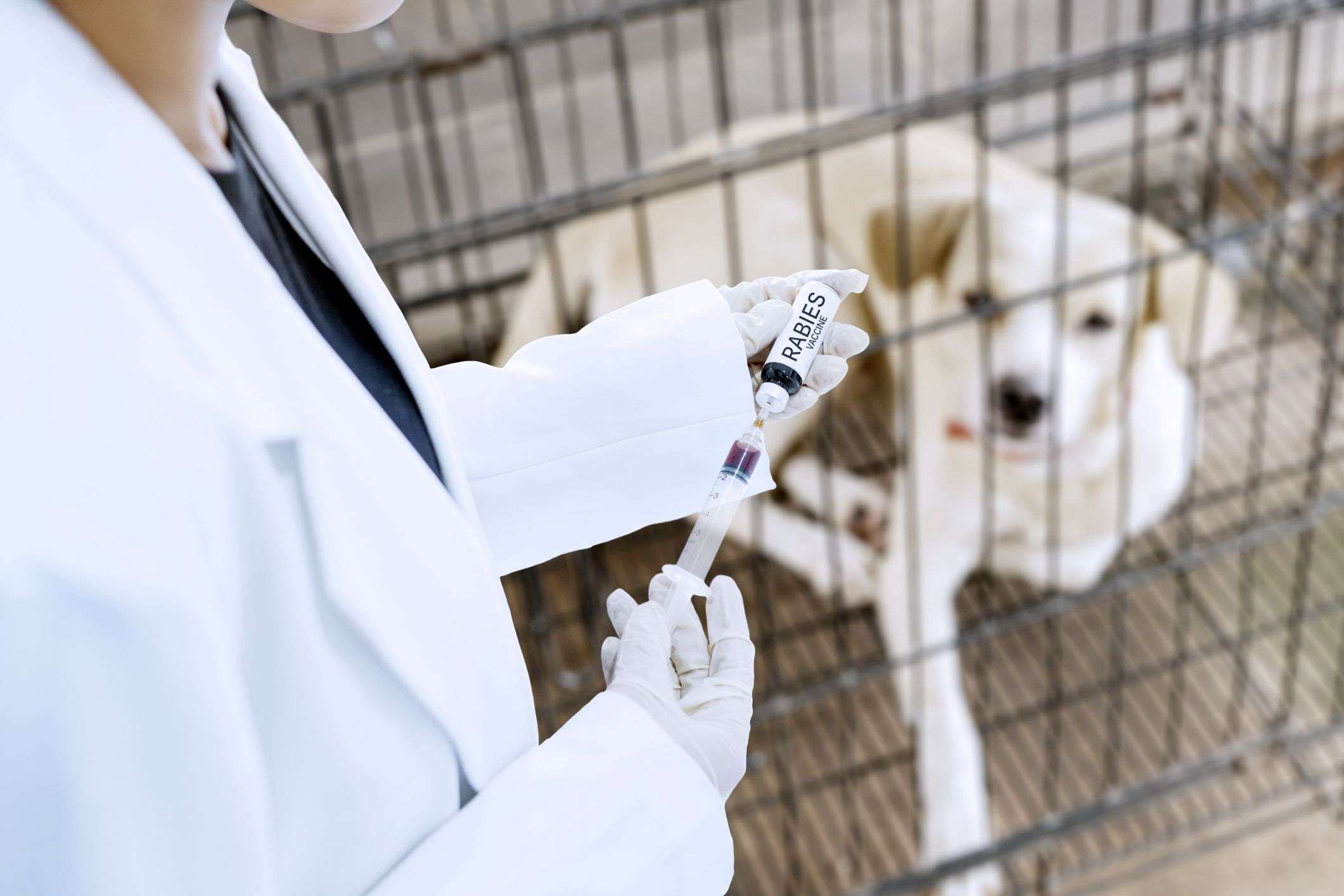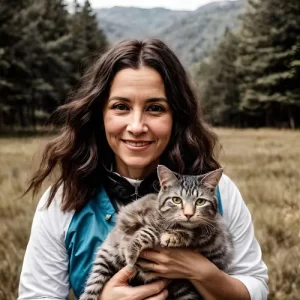Learn why adult cat vaccinations are crucial for their health and the safety of those around them. Prevent serious illnesses, reduce disease transmission, and improve overall well-being. Discover common diseases prevented through vaccinations and an example vaccination schedule.
Key Takeaways:
- Vaccinations are crucial for adult cats to prevent the spread of infectious diseases.
- The core vaccines recommended for adult cats include rabies, feline distemper, and feline herpesvirus-1.
- Non-core vaccines may be necessary depending on the cat's lifestyle and risk factors, such as outdoor exposure or boarding.
- Booster shots are required to maintain immunity, typically every 1-3 years depending on the vaccine.
- Consult with a veterinarian to determine the appropriate vaccination schedule for your adult cat based on their individual needs and circumstances.
Reference Used:
1.https://en.wikipedia.org/wiki/Cat_health
2.https://en.wikipedia.org/wiki/Deworming
3.https://en.wikipedia.org/wiki/Vaccine
Why Adult Cat Vaccinations are Important
Vaccinating adult cats is crucial for their overall health and well-being. Just like humans, cats can get sick from various diseases, some of which can be life-threatening. Vaccinations work by stimulating the cat's immune system to produce antibodies that can fight off specific diseases. By vaccinating your cat, you are providing them with protection against these diseases and reducing their risk of getting sick.
Adult cat vaccinations also play a significant role in preventing the spread of certain diseases to other cats or even to humans. Some feline diseases, such as rabies, can be transmitted to humans through bites or scratches. By keeping your cat up-to-date on their vaccinations, you are not only protecting them but also helping to create a safer environment for everyone around them.
Benefits of Adult Cat Vaccinations:
- Prevents serious illnesses
- Reduces the risk of disease transmission
- Improves overall health and longevity
- Saves on potential medical expenses
Common Diseases Prevented Through Adult Cat Vaccinations:
- Rabies
- Feline Distemper (Panleukopenia)
- Feline Herpesvirus-1 (FHV-1)
- Feline Calicivirus (FCV)
- Feline Leukemia Virus (FeLV)
An Average Adult Cat Vaccination Schedule
The vaccination schedule for adult cats may vary depending on factors such as the cat's age, lifestyle, and overall health. However, there are some common vaccines that most adult cats should receive. These vaccines are typically given as a series of injections, and the initial vaccination may require multiple doses to ensure maximum effectiveness.
Here is an example of a typical adult cat vaccination schedule:
1. Rabies Vaccine:
The rabies vaccine is usually required by law in many areas and is essential for protecting your cat against this deadly viral disease. The initial rabies vaccination is typically given around 12-16 weeks of age, followed by a booster shot one year later. After the first booster, the vaccine is usually given every 1-3 years depending on local regulations.
2. FVRCP Vaccine:
The FVRCP vaccine protects against three common feline diseases: feline viral rhinotracheitis (herpesvirus-1), calicivirus, and panleukopenia (also known as feline distemper). The initial FVRCP vaccination is usually given around 6-8 weeks of age, followed by boosters every 3-4 weeks until the kitten reaches 16 weeks old. After the initial series, adult cats typically receive a booster every 1-3 years.
3. FeLV Vaccine:
The feline leukemia virus (FeLV) vaccine is recommended for cats that have outdoor access or live with other cats that go outdoors. FeLV can be transmitted through close contact with infected cats and can lead to serious health issues. The initial FeLV vaccination is usually given around 9-12 weeks of age, followed by a booster shot three to four weeks later. After the initial series, adult cats may receive boosters annually or based on their risk factors.
It's important to consult with your veterinarian to determine the best vaccination schedule for your specific cat's needs.
When Should an Adult Cat Get its First Vaccination?
Age for the First Vaccination
The first vaccination for an adult cat should typically occur when they are around 8 to 12 weeks old. This is because kittens receive some immunity from their mother's milk, but it gradually decreases as they grow older. By getting the first vaccination at this age, it helps to ensure that the kitten develops their own immune response to common diseases.
Importance of Early Vaccination
Early vaccination is crucial as it helps protect adult cats from potentially life-threatening diseases. Kittens are more susceptible to infections due to their developing immune systems, and vaccines can provide them with the necessary protection. Additionally, early vaccinations help prevent the spread of diseases within multi-cat households or shelters.
Common Diseases Prevented Through Adult Cat Vaccinations
Feline Panleukopenia (FPV)
FPV is a highly contagious viral disease that affects a cat's bone marrow and intestines. It can lead to severe dehydration, fever, vomiting, and even death. Vaccinating against FPV is essential in preventing this disease.
Feline Calicivirus (FCV)
FCV causes respiratory infections in cats and can result in symptoms such as sneezing, nasal discharge, ulcers in the mouth, and pneumonia. Vaccinating against FCV helps reduce the severity of these symptoms and prevents further complications.
Feline Herpesvirus (FHV-1)
FHV-1 is another common cause of respiratory infections in cats. It can lead to symptoms like sneezing, eye discharge, conjunctivitis, and corneal ulcers. Vaccinating against FHV-1 helps minimize the risk of infection and reduces the severity of symptoms.
Rabies
Rabies is a fatal viral disease that affects both cats and humans. It is transmitted through bites from infected animals. Vaccinating against rabies is not only important for the health of the cat but also for public safety.
How Often Should an Adult Cat be Vaccinated?
Core Vaccines
Core vaccines, which protect against common and potentially life-threatening diseases, should be administered to adult cats every 1 to 3 years. These include vaccinations for FPV, FCV, FHV-1, and rabies.
Non-Core Vaccines
Non-core vaccines are optional and depend on factors such as the cat's lifestyle and risk of exposure to certain diseases. These vaccines may be required annually or every few years based on individual circumstances.
Possible Side Effects and Risks of Cat Vaccinations
Mild Side Effects
Some cats may experience mild side effects after vaccination, such as temporary lethargy, mild fever, or localized swelling at the injection site. These symptoms usually resolve within a day or two without any intervention.
Rare Serious Reactions
While rare, some cats may have more serious reactions to vaccinations. These can include allergic reactions, anaphylaxis (a severe allergic response), or vaccine-associated sarcomas (tumors). However, the benefits of vaccination generally outweigh the risks.
Talk to Your Veterinarian
It is essential to discuss any concerns about potential side effects with your veterinarian before vaccinating your adult cat. They can provide guidance based on your cat's specific health history and help you make informed decisions.
Vaccinating an Adult Cat for the First Time
When vaccinating an adult cat for the first time, it is important to follow a proper vaccination schedule. The initial vaccination may require multiple doses, typically given 3-4 weeks apart, to ensure adequate protection.
Consult with a Veterinarian
Before vaccinating an adult cat for the first time, it is recommended to consult with a veterinarian. They can assess the cat's health status, lifestyle, and potential exposure risks to determine the appropriate vaccines and schedule.
Risks of Over-Vaccinating an Adult Cat
Potential Health Risks
Over-vaccination can potentially lead to adverse health effects in adult cats. These risks include immune system disorders, allergic reactions, and vaccine-associated sarcomas. It is crucial to follow appropriate vaccination guidelines and consult with a veterinarian to avoid unnecessary vaccinations.
Titer Testing as an Alternative
Titer testing measures the level of antibodies in a cat's blood and can be used as an alternative to routine vaccinations. This test helps determine if a cat has sufficient immunity against certain diseases without the need for additional vaccinations.
Special Considerations for Breed or Health Conditions in Adult Cat Vaccinations
Breed-Specific Considerations
Certain cat breeds may have unique considerations when it comes to vaccinations. For example, some purebred cats may have higher risks of specific diseases or adverse reactions to certain vaccines. Discussing these concerns with a veterinarian who is familiar with your cat's breed is essential.
Health Condition Considerations
Cats with underlying health conditions may require special vaccination considerations. For instance, cats with compromised immune systems or chronic illnesses may need tailored vaccination schedules or specific vaccines based on their individual needs.
Veterinary Guidance
It is crucial to work closely with your veterinarian when vaccinating adult cats with breed-specific considerations or underlying health conditions. They can provide personalized recommendations and ensure the best vaccination approach for your cat's unique circumstances.
| Vaccination | Timing |
|---|---|
| Rabies | Every 1-3 years, as required by law and veterinarian recommendations. |
| Feline Distemper (FVRCP) | Initial series of shots at 8, 12, and 16 weeks old. Boosters every 1-3 years thereafter. |
| Feline Leukemia (FeLV) | Initial series of shots at 8, 12, and 16 weeks old for high-risk cats. Boosters may be recommended annually or based on lifestyle. |
In conclusion, the average adult cat vaccination schedule includes regular vaccinations for rabies,
What vaccines should cats get and how often?
If you have an adult cat that stays indoors, the FVRCP vaccine can be administered every three years. However, if your cat goes outdoors or is both indoor and outdoor, or if they are young or elderly, your veterinarian may suggest getting the FVRCP shots every year. Cats that will be in stressful situations, like being boarded, may benefit from a booster shot of the core vaccine 7-10 days before the event.
What vaccines should indoor cats get yearly?
For cats that live indoors, we suggest that they receive at least two important vaccines: FVRCP and rabies. The specific timing and dosage of these vaccines will depend on the type of vaccine being used and how it is administered.
How many shots do indoor cats need?
Indoor cats usually only need to be vaccinated against feline panleukopenia virus, feline herpesvirus-1, and feline calicivirus. These core vaccines are recommended for all cats, whether they live indoors or outdoors, because these diseases are common and can be severe.
Do cats really need yearly vaccinations?
To begin your kitten's vaccination process, they will need two sets of vaccinations. The first set should be given at nine weeks old, followed by a second booster set at three months old. After this initial process, kittens and cats generally require annual booster vaccinations. It is important to keep your kitten indoors until they are fully vaccinated and neutered.
What vaccines do cats need throughout their life?
In order to ensure the well-being of your cat, it is important to provide them with three essential vaccinations: Rabies, FVRCP, and FeLV (Feline Leukemia). Depending on your cat's lifestyle, vaccination history, or any other health conditions, you may need to adjust their vaccination schedule.
What vaccines do cats need by age?
Vaccinations for kittens typically begin at 6-8 weeks of age and are given every 3-4 weeks until the kitten reaches 4 months old. The core vaccines are important in protecting your kitten from common diseases, such as feline distemper (panleukopenia), feline viral rhinotracheitis (feline herpes virus 1), calicivirus, and rabies.

















